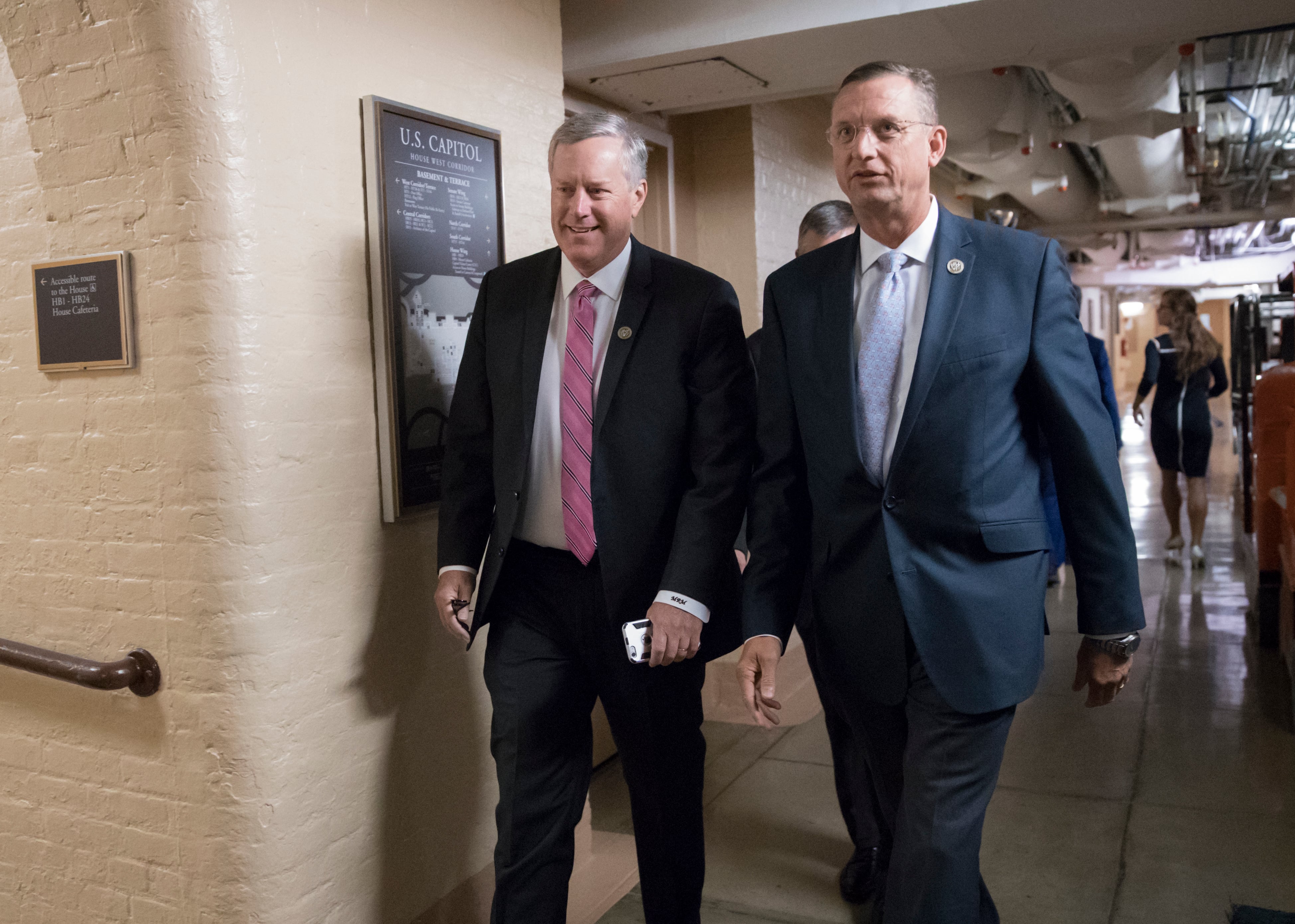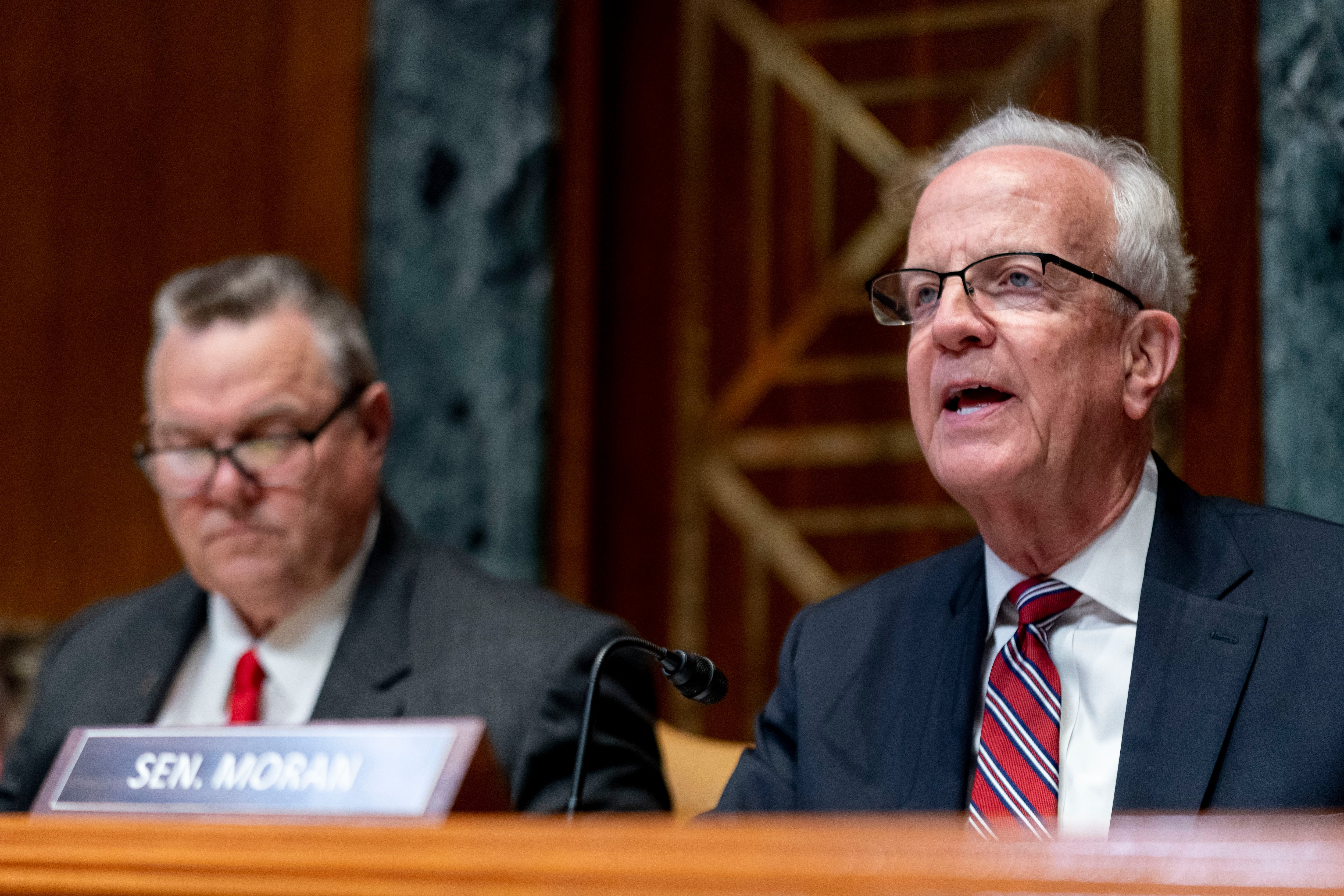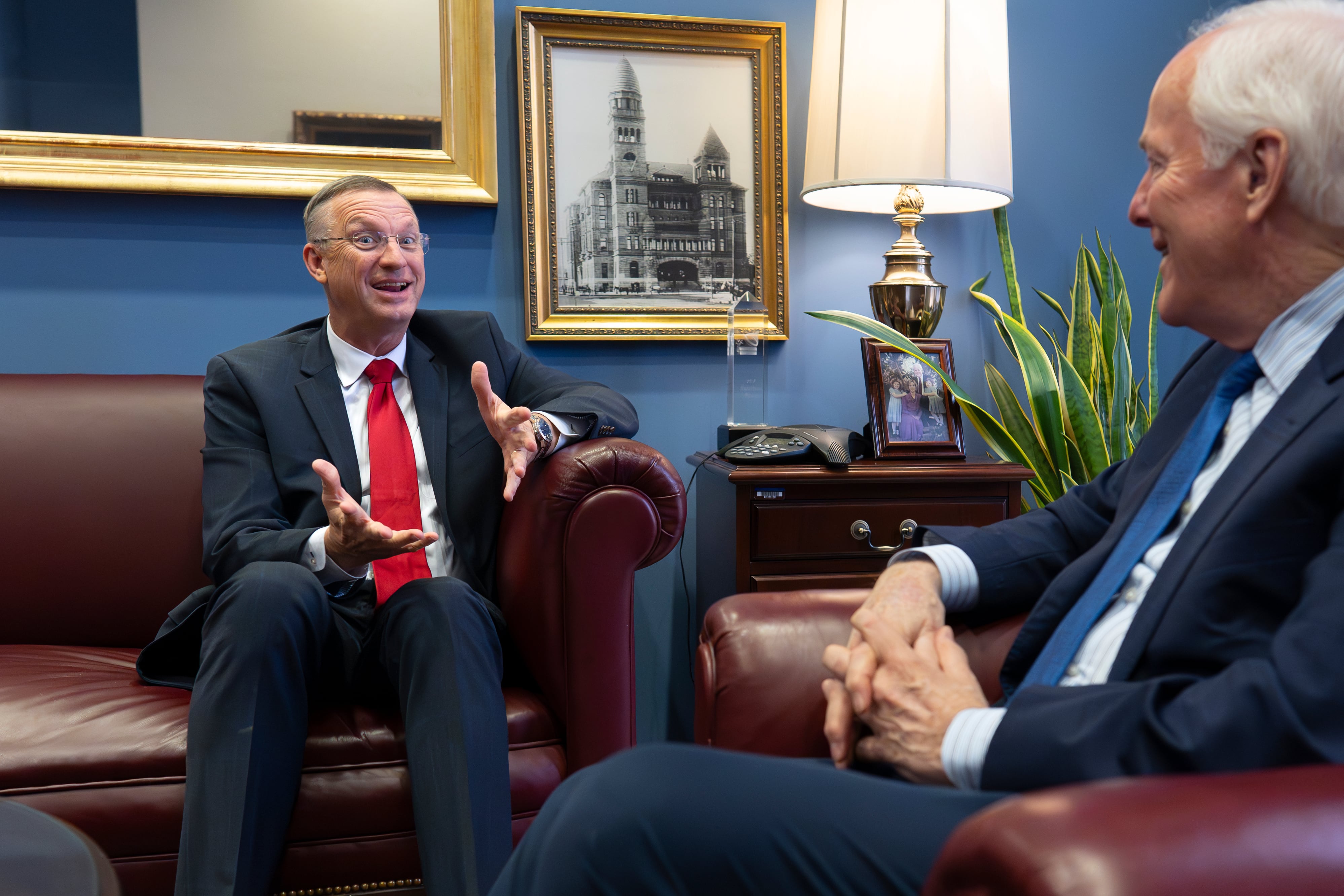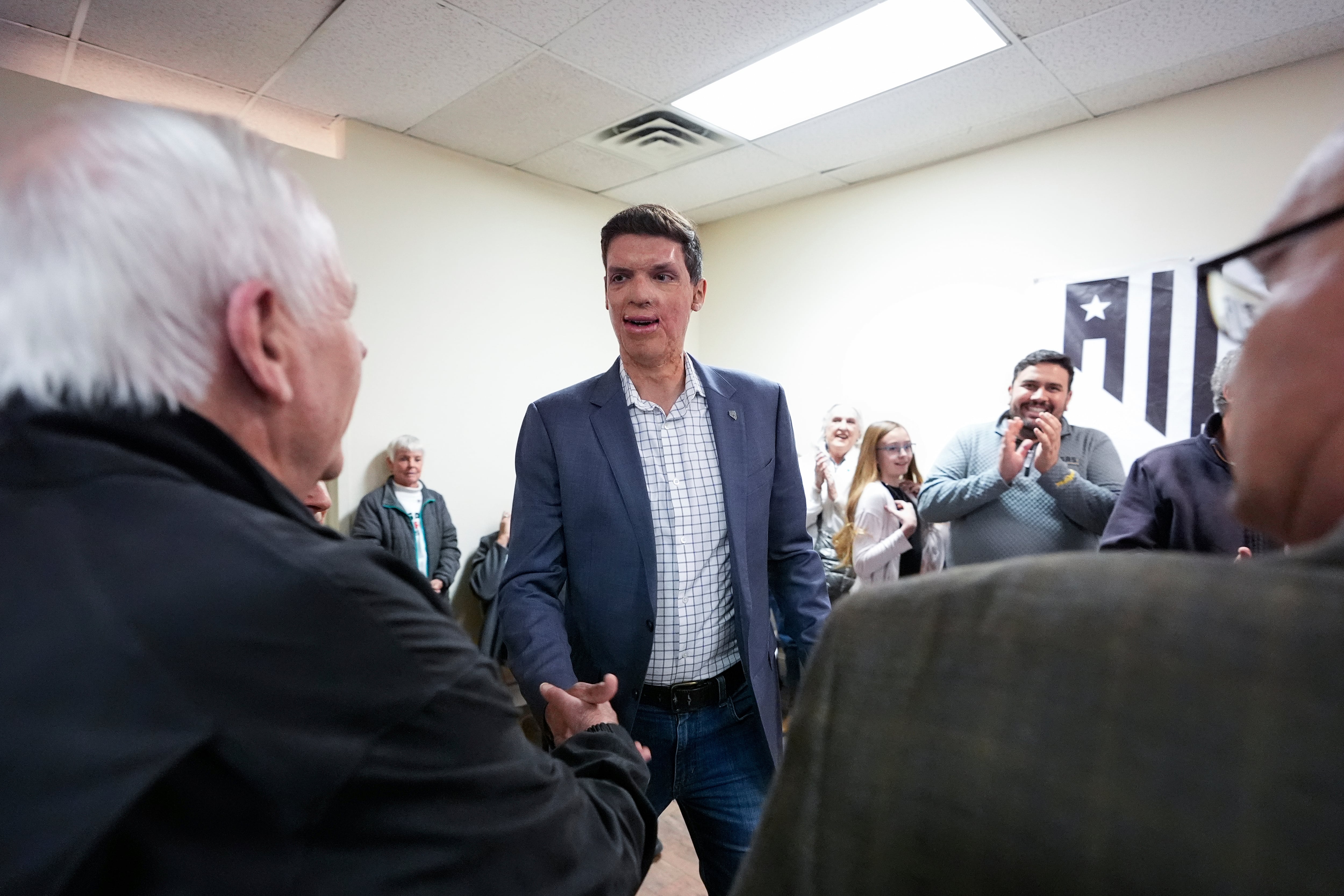A Turkish soldier was killed by a Kurdish rocket attack late Saturday, the first such fatality in Turkey's ground offensive dubbed Euphrates Shield that began Aug. 24.
Speaking at a rally in the border town of Gaziantep, Turkish President Recep Tayyip Erdogan said his military is committed to fighting terrorism in Syria and Iraq.
Turkey, he said, also is determined to "uproot" the Syrian Kurdish group, calling it a terrorist organization. But he didn't specify a goal for the fight against the Kurdish forces.
Turkey is part of the U.S.-led coalition fighting the militants of the Islamic State group, but the airstrikes that began Saturday marked the first time it has targeted Kurdish-led forces in Syria.
"We will support all work to clean Syria and Iraq of Daesh," Erdogan told the rally, using an Arabic acronym for the IS group. "That's why we are in Jarablus, that's why we are in Bashiqa (in Iraq). If necessary, we will not shy away from taking responsibility in the same way in other areas."
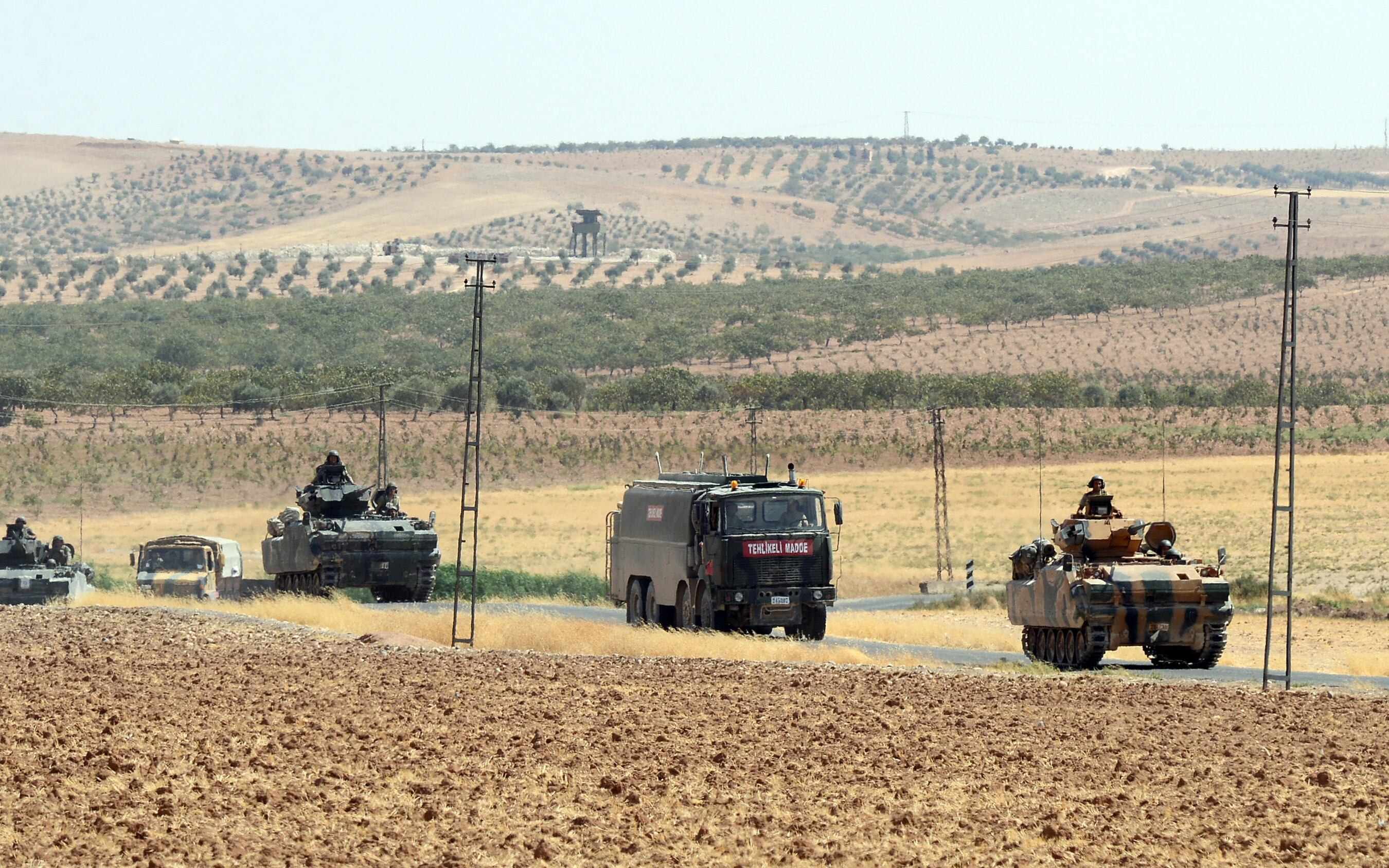
Turkish troops return from the Syrian border on Aug. 27, 2016, in Karkamis, Turkey.
Photo Credit: Ismail Coskun/IHA via AP
Turkey has troops stationed in Bashiqa in northern Iraq, and it was not clear if his reference to Jarablus means he intends to base his troops there.
Erdogan then turned his focus to the main Syrian Kurdish Democratic Union Party, known as the PYD.
"We are as determined about the PYD, the separatist terror organization's Syrian wing," he said. Ankara views the PYD and the militia affiliated with it, which forms the backbone of the U.S.-backed Syria Democratic Forces, or SDF, as an extension of the Kurdish insurgency that is raging in southeastern Turkey.
"We will continue until we uproot this terror organization," Erdogan told the rally.
A spokesman for a Syrian rebel group said the Turkish-backed offensive will continue south of Jarablus to clear IS and Kurdish forces from northeastern Aleppo. Turkish leaders have vowed to drive both IS and the Kurdish People's Protection Units, or YPG, away from the border.
Turkey's military said Sunday its warplanes killed 25 Kurdish "terrorists" and destroyed five buildings used by the fighters in response to attacks on advancing Turkish-backed rebels in the Jarablus area.
Various factions of the Turkey-backed Syrian rebels said they had seized several villages and towns from Kurdish-led forces south of Jarablus, including Amarneh, where fighting was fiercest in recent days.
The Kurdish-led forces "must pull back to the east of the Euphrates. We will fight all terrorist groups, including (the Kurdish-led fighters) ... in all of northeast Aleppo," said Capt. Abdel-Salam Abdel-Razzak, a spokesman for the Nour el-Din el-Zinki group.
Turkish-backed fighters will move south of Jarablus, toward Manbij and beyond, he said.
Earlier this month, the Kurdish-led SDF crossed the Euphrates and drove IS militants out of Manbij, a key supply hub south of Jarablus, after a 10-week campaign. Both Turkey and the United States have ordered the YPG militia to withdraw to the east bank of the river. YPG leaders say they have, but their units advise the Syrian Democratic Forces, and it is not clear if any remain west of the Euphrates.
The Britain-based Syrian Observatory for Human Rights said the bombing killed at least 20 civilians and four Kurdish-led fighters in Beir Koussa, a village about nine miles (15 kilometers) south of Jarablus, and left another 15 dead in a village to the west.
SDF spokesman Shervan Darwish said the airstrikes and shelling began overnight and continued Sunday along the front line, killing many civilians in Beir Koussa and nearby areas. He said the bombing also targeted the village of Amarneh. He said 50 Turkish tanks were taking part.
The Kurdish Democratic Union Party condemned the attack on the village. It also condemned what it said was international silence regarding "Turkish occupation" of Syria.
The Syrian state news agency SANA reported that 20 civilians were killed and 50 wounded by Turkish artillery and airstrikes, calling it "encroachment" on Syrian sovereignty under the pretext of fighting IS. Turkey is a leading backer of the rebels fighting to overthrow Syrian President Bashar Assad, but both Ankara and Damascus share concerns over Kurdish ambitions for autonomy.
Syrian warplanes renewed their bombing of the besieged al-Waer neighborhood in the central city of Homs. An activist in the neighborhood of Bebars al-Talawy said there were at least a dozen airstrikes, killing one person.
The neighborhood came under attack Saturday, including incendiary bombs that killed two children, a brother and sister. Images of doctors treating other children for their burns were posted on social media sites. The district's hospital was bombed and taken out of operation earlier this month.
Human Rights Watch said it had documented the use of incendiary weapons in at least 18 different instances between June and August in rebel-held areas. The group blamed Russian and Syrian joint military operations room for the use of such weapons in violation of international law.
The al-Waer neighborhood of nearly 75,000 people has been under siege since March and has been one area that U.N agencies have reported difficult to access. An aid convoy reached the area Aug. 25.
According to residents, the escalation followed recent threats by soldiers at checkpoints that the Syrian government's patience was running out with the district, the last rebel holdout in the city.
It also follows the evacuation of Daraya, a Damascus suburb, as part of a deal struck between the government and rebels after a bombing campaign and siege.
The Homs Local Council appealed to the U.N. envoy to Syria to negotiate a truce for al-Waer, condemning the government's "siege policy" that aims to force residents and fighters to surrender.
Associated Press writer Zeynep Bilginsoy in Istanbul and Mucahit Ceylan in Karkamis, Turkey, contributed to this report.


